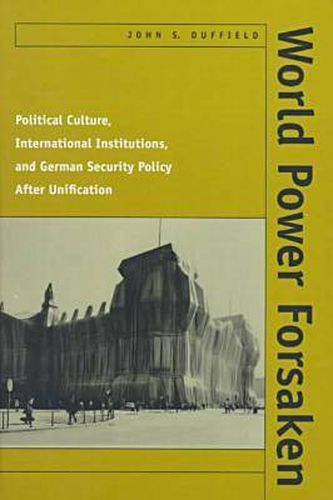Readings Newsletter
Become a Readings Member to make your shopping experience even easier.
Sign in or sign up for free!
You’re not far away from qualifying for FREE standard shipping within Australia
You’ve qualified for FREE standard shipping within Australia
The cart is loading…






What does German unification imply for international politics? Many commentators have speculated about how a united Germany will use its new found power and influence on the world stage, and for good reason. Because of its size, central location, and strong economy, Germany will inevitably exert considerable influence over developments in Europe, if not beyond. Drawing on interviews and other primary source materials, this comprehensive study examines in detail each of the central issues of Germany’s security policy since 1990: its promotion of political and economic reform in the former Soviet bloc, its efforts to maintain and strengthen European security institutions, the transformation of Germany s armed forces, and its responses to international crises and conflicts, including the debate over German participation in foreign military actions. Rejecting claims that German policy is becoming nationalized and militarized, the author argues that Germany s actions have in fact been characterized by considerable restraint and continuity with the past, notwithstanding its much greater potential freedom of action after the Cold War.
$9.00 standard shipping within Australia
FREE standard shipping within Australia for orders over $100.00
Express & International shipping calculated at checkout
What does German unification imply for international politics? Many commentators have speculated about how a united Germany will use its new found power and influence on the world stage, and for good reason. Because of its size, central location, and strong economy, Germany will inevitably exert considerable influence over developments in Europe, if not beyond. Drawing on interviews and other primary source materials, this comprehensive study examines in detail each of the central issues of Germany’s security policy since 1990: its promotion of political and economic reform in the former Soviet bloc, its efforts to maintain and strengthen European security institutions, the transformation of Germany s armed forces, and its responses to international crises and conflicts, including the debate over German participation in foreign military actions. Rejecting claims that German policy is becoming nationalized and militarized, the author argues that Germany s actions have in fact been characterized by considerable restraint and continuity with the past, notwithstanding its much greater potential freedom of action after the Cold War.